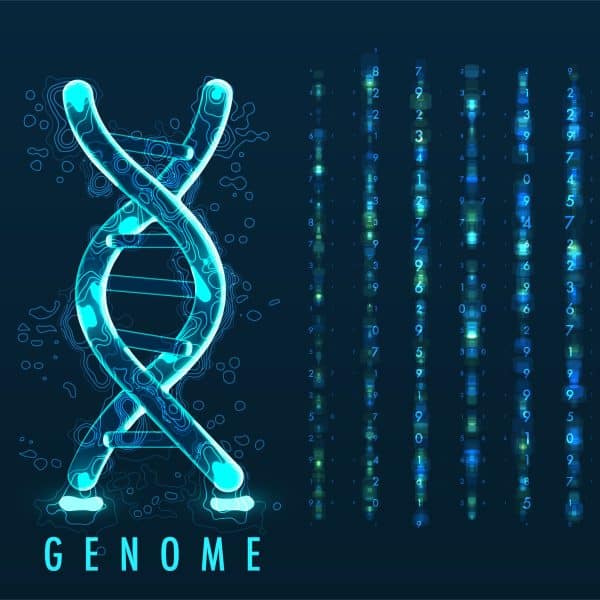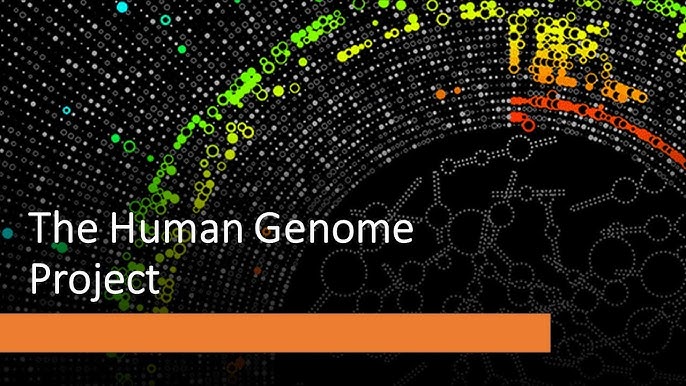The Human Genome Project (HGP), a groundbreaking scientific endeavor, set out to map and understand all the genes in the human genome. Completed in 2003, this international collaboration has fundamentally transformed modern medicine by providing a comprehensive “genetic blueprint” of human life. The HGP’s discoveries have ushered in an era of precision medicine, allowing doctors and researchers to develop treatments tailored to an individual’s genetic makeup. This article explores the Human Genome Project’s milestones, its impact on modern medicine, and the ongoing advancements it has inspired.
What Was the Human Genome Project?

The Human Genome Project was a multinational, decade-long research initiative aimed at mapping all the genes in the human genome, totaling approximately 20,000-25,000 genes. Officially launched in 1990, the HGP brought together scientists from the United States, the United Kingdom, Japan, France, Germany, and other countries. The goal was to sequence the three billion DNA base pairs that make up human DNA, identify each gene’s location, and understand their roles in health and disease.
The project concluded in 2003, two years ahead of schedule, thanks to rapid advancements in sequencing technology. The data generated from the HGP is freely available, making it an invaluable resource for scientists worldwide and paving the way for numerous medical and scientific breakthroughs.
Milestones of the Human Genome Project
- Complete Sequencing of the Human Genome: The HGP successfully mapped all the genes in human DNA, providing a comprehensive reference for human genetics.
- Identification of Gene Functions: The project identified gene functions, shedding light on how certain genes contribute to health and disease. This has helped researchers pinpoint genes linked to specific medical conditions.
- Technology Advancements: The HGP accelerated the development of DNA sequencing technologies, making gene sequencing faster, cheaper, and more accurate.
- Open Data Access: The HGP made its data publicly accessible, promoting global research collaboration and enabling the growth of fields like bioinformatics, genomics, and personalized medicine.
Impact on Modern Medicine
The Human Genome Project has had a profound impact on modern medicine, influencing research, diagnostics, and treatment methods across numerous medical fields. Here are some of the most significant ways the HGP has reshaped medicine:
1. The Rise of Precision Medicine
One of the most transformative impacts of the HGP is the rise of precision medicine, also known as personalized medicine. Precision medicine tailors treatments based on an individual’s unique genetic makeup, lifestyle, and environment, rather than a “one-size-fits-all” approach. By analyzing a patient’s genetic profile, doctors can now select treatments that are more likely to be effective and have fewer side effects.
For instance, in cancer treatment, genomic profiling helps identify specific genetic mutations driving tumor growth. This allows oncologists to target those mutations with precision therapies, such as targeted drugs or immunotherapy, improving patient outcomes.
2. Genetic Testing and Disease Risk Prediction
The HGP has enabled the development of genetic tests that can identify an individual’s risk for certain diseases, including hereditary cancers, cardiovascular diseases, and neurodegenerative disorders. These tests detect genetic mutations associated with an increased risk, allowing for early interventions and lifestyle modifications to reduce disease risk.
For example, genetic testing can reveal mutations in the BRCA1 and BRCA2 genes, which significantly increase the risk of breast and ovarian cancers. Individuals with these mutations can take preventive measures, such as regular screenings or preventive surgeries, to manage their risk.
3. Drug Development and Pharmacogenomics
Pharmacogenomics, the study of how genes affect a person’s response to drugs, is a rapidly growing field made possible by the HGP. By understanding genetic variations, pharmaceutical companies can develop drugs that work more effectively for specific genetic profiles. Pharmacogenomics also helps doctors prescribe medications with fewer side effects by determining the most suitable drug and dosage for individual patients.
For instance, certain genetic variations affect how individuals metabolize drugs like warfarin, an anticoagulant. Pharmacogenomic testing can help determine the optimal dose for each patient, minimizing adverse effects and improving treatment outcomes.
4. Advances in Cancer Research and Treatment
The HGP has had a significant impact on cancer research. By identifying genetic mutations that contribute to cancer development, researchers have gained insights into how different types of cancer originate and progress. This knowledge has led to the development of targeted therapies and immunotherapies that focus on specific genetic changes in cancer cells.
For example, the development of drugs like trastuzumab (Herceptin) for HER2-positive breast cancer was made possible by identifying the HER2 gene’s role in promoting aggressive tumor growth. By targeting the HER2 protein, Herceptin has improved survival rates for breast cancer patients with this genetic profile.
5. Understanding Rare Genetic Disorders
The HGP has also contributed to diagnosing and understanding rare genetic disorders. Previously, patients with rare diseases often faced years of misdiagnoses. Now, whole-genome sequencing can provide definitive diagnoses by identifying mutations associated with these conditions. This has not only improved the quality of life for patients with rare diseases but has also allowed for the development of targeted treatments and therapies.
For instance, researchers have identified specific gene mutations responsible for cystic fibrosis, spinal muscular atrophy, and Duchenne muscular dystrophy. In some cases, this knowledge has led to gene therapy options, where the faulty gene is replaced or repaired to restore normal function.
The Role of Genomics in Public Health
The HGP has expanded beyond individual treatment to influence public health strategies. By identifying genetic factors that contribute to diseases common in certain populations, genomics can inform targeted prevention and screening programs. Public health initiatives can use genetic data to develop customized interventions, ensuring that at-risk populations receive the attention they need.
For instance, genomics has highlighted genetic predispositions to diseases like sickle cell anemia and Tay-Sachs disease within specific ethnic groups, helping guide public health policies on screening and education.
Ethical, Legal, and Social Implications
While the HGP has provided countless benefits, it also raises ethical, legal, and social issues. Some of these concerns include:
- Privacy and Data Security: Genetic data is sensitive, and concerns about its misuse, especially by insurance companies and employers, have led to calls for stronger privacy protections. Laws like the Genetic Information Nondiscrimination Act (GINA) in the U.S. aim to prevent discrimination based on genetic information.
- Equitable Access to Genomic Medicine: As genomic medicine becomes more prevalent, ensuring that all individuals have equal access to its benefits is crucial. Cost and lack of resources can limit access to genomic tests and therapies, creating disparities in healthcare.
- Informed Consent and Genetic Counseling: Genetic testing can reveal unexpected information, such as the presence of genes associated with untreatable diseases. Providing adequate counseling and ensuring informed consent are essential to help patients understand and cope with their genetic information.
- Potential for Genetic Editing: With technologies like CRISPR, the possibility of editing genes raises questions about altering the human genome. While gene editing could potentially eliminate certain genetic diseases, it also brings up concerns about the ethics of “designer babies” and long-term effects on the gene pool.
The Future of Genomics in Medicine
The impact of the Human Genome Project is still unfolding. Advances in gene-editing technology, such as CRISPR, have opened new possibilities for treating genetic diseases by correcting mutations at the DNA level. Additionally, ongoing research into epigenetics, which studies how environmental factors influence gene expression, is deepening our understanding of how lifestyle choices affect health.
With rapid advancements in artificial intelligence and machine learning, the analysis of genomic data is becoming more sophisticated, enabling even more precise predictions and treatments. The future of medicine, driven by genomics, holds the promise of personalized healthcare that adapts to each patient’s genetic makeup, environment, and lifestyle.
Conclusion
The Human Genome Project has had a transformative impact on modern medicine, laying the foundation for precision medicine, advancing drug development, and enhancing our understanding of diseases. Its influence continues to expand as researchers build upon the knowledge and resources it has provided. By unlocking the secrets of the human genome, the HGP has opened doors to medical innovations that are improving lives worldwide. While ethical and accessibility challenges remain, the ongoing work in genomics promises a future where medicine is more personalized, preventive, and precise than ever before.


